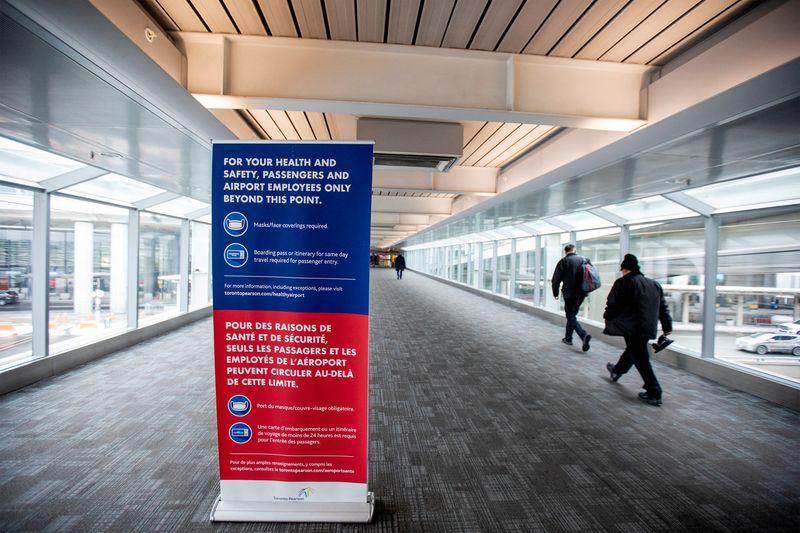By Allison Lampert and David Shepardson
(Reuters) - European airlines are walking an increasingly fine line to meet both foreign inoculation and local privacy requirements, as more countries require flight crews to be vaccinated against COVID-19, carriers say.
Canada is slated on Jan. 15 to end an exemption that allowed entry of unvaccinated foreign flight crews, joining others that have vaccine mandates for pilots and passengers alike.
That's creating a logistical headache for European carriers, who are unable to ask for their employees' vaccination status since they are bound to strict data protection laws in Europe, a spokesperson for the trade group Airlines For Europe (A4E) said.
"Carriers will need to find workarounds in order to comply with the Canadian entry requirement," A4E spokesperson Jennifer Janzen said by email.
U.S. carriers like United Airlines require their cabin crew to be fully vaccinated, while rivals like American Airlines (NASDAQ:AAL) and Southwest Airlines (NYSE:LUV) have delayed the effective date of vaccine mandates until 2022 for employees.
Airlines, which have suffered steep losses due to COVID-19 travel restrictions and bans, are blaming a patchwork of shifting rules for increased red-tape and depressed demand for international travel.
Airlines expect to see more inoculation mandates for crew as the fast-spreading Omicron variant forces governments to tighten border restrictions.
"We now see that more and more countries are mandating or considering immunization of flight crews," said KLM Royal Dutch Airlines in a statement.
The carrier identified intercontinental flights to about 10 destinations where crew are currently not exempt from vaccine requirements.
As more countries demand proof of inoculation from everyone on planes, international flights will no longer be practical without vaccinated crews, said a spokesperson for Germany's Lufthansa AG (DE:LHAG) which can't obligate its personnel to be vaccinated against COVID-19.
Canada, which implored residents on Wednesday not to leave the country due to Omicron, is expected to announce on Friday that it will again require people returning from short foreign trips to submit a negative COVID-19 test.
Still, some countries give foreign flight crews a pass from vaccination rules aimed at international travelers, as recommended by the U.N.'s aviation agency.
International flight crews are exempted from U.S. requirements that all non-U.S. citizens travelling from abroad be vaccinated.
Transport Canada said in a statement it is working closely "with public health officials on the vaccination requirements impacting international aircrew."

Since KLM does not require crew members to be inoculated or share their vaccination status, employees must instead seek a generalized "travel restriction" so they are not scheduled to fly to a destination with entry requirements they cannot meet, the carrier said.
"Managers do not gain insight into the reason for the restriction," the airline said in the emailed statement. "Only in this way we can continue to fill in the rosters properly and keep our operation feasible."